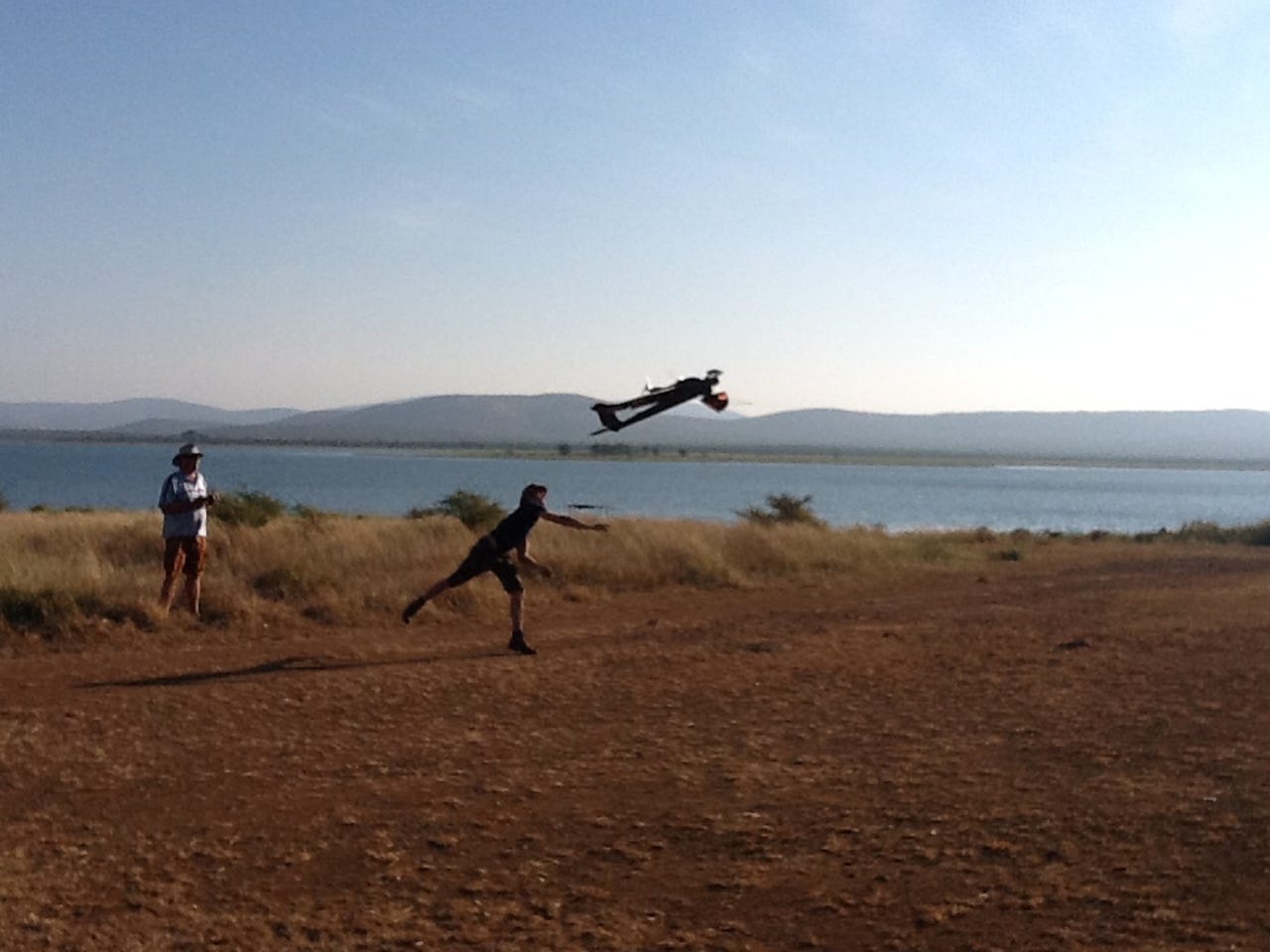Drones to the rescue: How one South African project is using big data to outfox rhino poachers


Air Shepherd is the brainchild of the Lindbergh Foundation, a US non-profit organisation that's been testing anti-poaching technology and tactics with wildlife services in Kenya and South Africa for some years now.
It's now developing a program in partnership with the University of Maryland to develop a program that uses predictive analytics and drone aircraft fitted with infrared sensors to guide game rangers to sites where poaching is likely to happen.
"The biggest problem with manned aircraft," explains John L Petersen, chairman of the Lindbergh Foundation and an ex-pilot himself, "is that you can't operate them effectively at night. Most poaching takes place between the hours of 6pm and 9pm, so you have a mismatch."
Rhino, once one of the more prolific inhabitants of the African plain, are close to being wiped out. According to Save the Rhino, global numbers have fallen from half a million in 1900 to less than 30 000 today. Poaching, specifically for powdered horn to be used in quack remedies in the East, has reduced the number of Asian rhino to just a few thousand.
The largest market for rhino horn is Vietnam, and its market value is estimated to be around $300,000 a kilo. That kind of money has led poachers to wreak the same levels of devastation on African populations as they have in Asia. Despite all efforts to the contrary, including education programs in other key markets for rhino horn like China, the number of rhinos killed for their horn in South Africa alone rose from just 20 in 2008 to 1215 last year. 2015 is shaping up to be even worse.
There's been no shortage of high tech offers to help either. In 2013, South Africa's Council for Scientific and Industrial Research (CSIR) announced that it was stepping in to help SA National Parks (SANParks) evaluate the effectiveness and cost of the many solutions put forward by companies and individuals.
Petersen says that the full Air Shepherd solution including the University of Maryland's data analytics hasn't been field tested yet, but he has worked with South African firm UAV & Drone Solutions, which has a model that can remain airborne for two hours.
Their work in both the Kruger Park, South Africa's largest game reserve and home to more rhino than anywhere else in the world, and Hluhluwe-iMfolozi Park in KwaZulu-Natal has, says Petersen, proved promising.
What's unusual about Air Shepherd's approach is the openness with which the organisation details its plans. More often than not, the large African conservation bodies are cagey about their anti-poaching tactics for fear of giving poachers an edge. Petersen, however, says that he's happy revealing all on the Indiegogo page.
"To establish credibility we have to talk about what were doing," he says, "And there's no-one else prepared to invest the millions of dollars we are into doing this."
The system Petersen describes involves using drones to silently patrol areas picked out by the analytics software looking for human movement. Armed rangers are positioned such that they can reach any point in that area quickly - either by helicopter or truck - and then sent out to intercept poachers if they're spotted by the aircraft.
A spokesperson from Ezemvelo Wildlife, which is responsible for Hluhluwe-iMfolozi and other parks, couldn't confirm details of recent trials in the area, but did highlight that drones by themselves aren't going to solve the problems.
"There is no one method that works in isolation," he said, "Foot patrols are the most effective method which other methods have to supplement."
Air Shepherd's South African partner, UAV & Drone Solutions, confirmed that it has been trialling UAV technology with both SANParks and Ezemvelo for the last 12 months with some success.
You can find out more about the Air Shepherd project and its funding goals here - with just four days to go the organisation has raised $300,000 of its $500,000 goal.
Read more from Africa